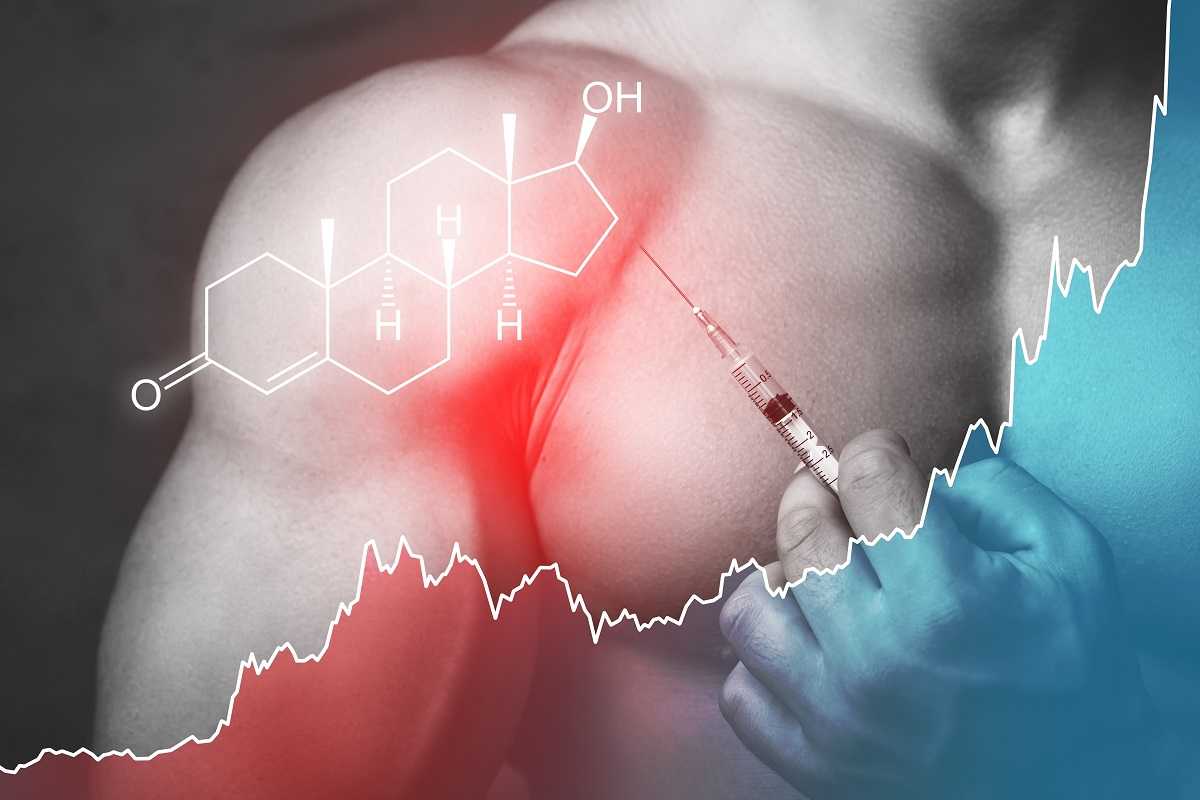Testosterone replacement therapy (TRT) is a medical treatment that aims to restore normal levels of testosterone in the body for men who have a deficiency of this hormone. Testosterone is a male sex hormone that plays a vital role in the development of male reproductive organs and secondary sexual characteristics, such as muscle mass, body hair, and a deep voice. Low testosterone levels can cause a wide range of symptoms such as fatigue, depression, low libido, and muscle loss.
Testosterone Replacement Therapy
TRT is typically administered through injections, patches, gels, or pellets placed under the skin. TRT is usually prescribed for men who have low testosterone levels due to certain medical conditions, such as testicular injury, radiation therapy or cancer treatment, or due to aging (commonly referred to as “andropause”).
Steroids
Steroids, on the other hand, are synthetic versions of testosterone that are used to increase muscle mass and strength, improve athletic performance, and enhance physical appearance. Steroids are often used illegally and abused by athletes, bodybuilders, and other individuals in order to gain a competitive advantage or to improve their physical appearance.
The Difference Between TRT and Steroids
The main difference between TRT and steroids is the purpose of use and the dosage. TRT is used to restore normal levels of testosterone in men with a deficiency, while steroids are used to artificially increase levels of testosterone beyond normal levels. TRT is prescribed and supervised by healthcare professionals and the dosages are individually tailored to meet the patient’s needs based on their testosterone levels and symptoms. Steroids, on the other hand, are often used in much higher doses, and without medical supervision, which can lead to serious side effects.
TRT, when used under the supervision of a healthcare professional, is considered safe and effective for treating low testosterone levels. However, when used in high doses or for prolonged periods, TRT can cause side effects such as acne, breast enlargement, and an increased risk of prostate cancer.
Steroids, on the other hand, are associated with a wide range of serious side effects, including acne, breast enlargement, increased risk of prostate cancer, infertility, and heart disease. Long-term use of steroids can also lead to addiction, depression, and aggression. In addition, many athletes, bodybuilders, and other individuals who use steroids illegally may obtain them from illegal sources, which can be dangerous as they may be impure or contaminated.
Conclusion
In conclusion, testosterone replacement therapy (TRT) and steroids are two different forms of testosterone therapy. TRT is used to restore normal levels of testosterone in men who have a deficiency, while steroids are used to artificially increase levels of testosterone beyond normal levels. TRT is prescribed and supervised by healthcare professionals, and the dosages are individually tailored to meet the patient’s needs based on their testosterone levels and symptoms. Steroids, on the other hand, are often used in much higher doses, and without medical supervision, which can lead to serious side effects.
If you want to learn more about hormonal treatment options or you have any additional questions about this topic, contact HRT Doctors Group today! Our team specializes in hormonal therapies and can help you find the right solution for your needs. We will do our best to answer your questions and help you find your way to hormone balance and well-being.
Questions and Answers
Testosterone is a naturally occurring hormone in the human body, primarily produced in the testes in males and in smaller amounts in the ovaries and adrenal glands in females. It plays a crucial role in the development of male reproductive tissues, muscle growth, and bone density.
Steroids refer to synthetic substances that mimic the effects of hormones like testosterone. They can be anabolic (promoting muscle growth) or corticosteroids (used to reduce inflammation).
Yes, testosterone is a natural anabolic steroid. However, synthetic anabolic steroids are artificially created substances designed to replicate or amplify testosterone’s effects.
Testosterone primarily supports natural body functions like muscle development, bone density, and libido. Anabolic steroids are often used to artificially enhance muscle mass and athletic performance beyond natural levels.
No. Medical testosterone therapy involves administering natural or synthetic testosterone to treat deficiencies, while anabolic steroids are often modified for performance enhancement and carry higher risks.
Yes, testosterone can be abused illegally for performance enhancement, similar to other anabolic steroids. However, it is often administered in higher-than-medical doses in these cases.
Anabolic steroids carry risks like liver damage, heart issues, hormonal imbalances, and psychological effects (e.g., aggression). Testosterone therapy, when medically supervised, is generally safer but still has potential side effects like acne or fluid retention.
Anabolic steroids are controlled substances in many countries due to their potential for abuse, severe side effects, and unfair advantages in sports.
Women can use medically supervised testosterone therapy for specific conditions, like hormonal deficiencies. However, anabolic steroids can cause masculinizing effects, such as deeper voice and facial hair growth.
Medically prescribed testosterone is tailored to restore normal hormonal levels under professional supervision. Anabolic steroids used illegally are often unregulated, obtained without prescriptions, and administered in dangerously high doses.
